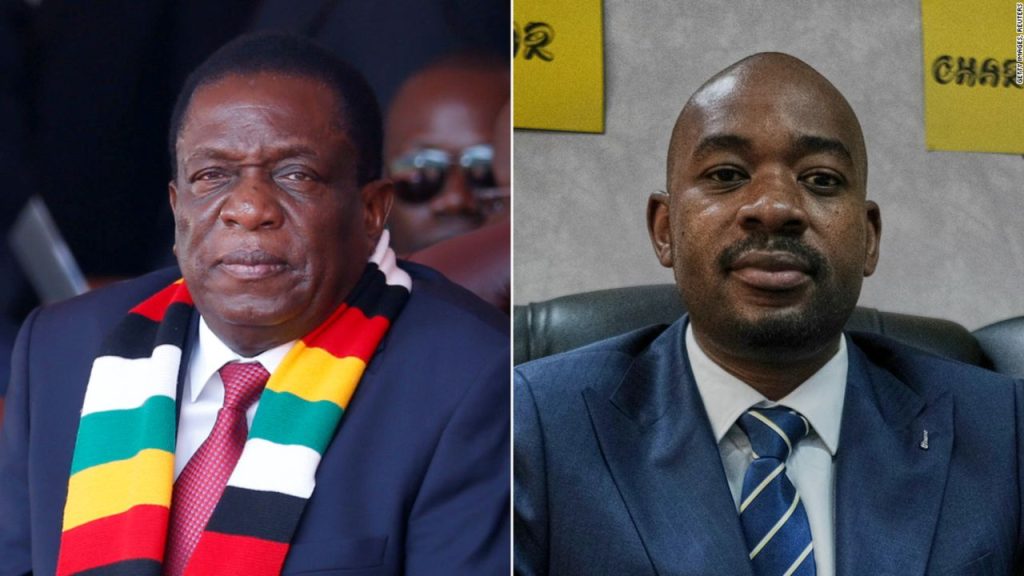The outgoing won 52.6% of the vote, against 44% in favor of his opponent Nelson Chamisa. But he denounces irregularities in an electoral process also condemned by several international observers
Zimbabwean President Emmerson Mnangagwa, 80, was reappointed on Saturday for a second term after a flawed ballot, the results of which were immediately rejected by the party of his main rival. He obtained 52.6% of the votes cast against 44% in favor of Nelson Chamisa, at the head of the first opposition party, the Citizens’ Coalition for Change (CCC), announced the electoral commission late in the evening of SATURDAY.
Zimbabweans went to the polls on Wednesday and Thursday to choose their president and MPs. Nearly 69% of registered voters took part in the vote. The ballot, which was due to close on Wednesday evening, had to be extended by one day. The confusion, and in particular the lack of ballots in the offices, has multiplied, in particular in the capital Harare, an opposition stronghold. Which was counting on a desire for change, fueled by rampant corruption and shortages of gasoline, bread or medicine in an economy stricken for twenty years.
The CCC, which had already denounced “fraud” and “obstructing” during the vote, rejected the results. “We have not endorsed the results because they are skewed. The electoral and pre-electoral context was not favorable, especially for us,” party spokesperson Promise Mkwananzi told AFP. “We cannot accept the results,” he said. The Electoral Commission acknowledged that less than a quarter of polling stations in Harare opened on time on Wednesday.
Untraceable voters and intimidation
Observers from the European Union, Southern Africa (SADC) and Commonwealth countries unanimously questioned the smooth running of the electoral process this week. They highlighted “serious problems” that marred the “regularity” and “transparency” of the ballot, as well as the violation of “many international standards” governing democratic elections.
Voters could not be found on the lists while others were intimidated at polling stations. Observers also noted the authorities’ refusal to accredit certain foreign media and questioned the bias of local public media. The vote was nonetheless held in a “calm and peaceful” context, they noted.
The electoral campaign in Zimbabwe, which had been led with an iron fist by the hero of the liberation Robert Mugabe, dismissed in 2017 by a coup d’etat, was marked by a repression without nuance of the opposition. The CCC denounced the ban on dozens of meetings and the arrests of opponents, including in private homes for “illegal assembly”, in a country already burdened by a long history of elections marred by irregularities.
Large majority in parliament
Before the election, Human Rights Watch had already pinpointed a “seriously flawed electoral process”. “The elections were marred by irregularities and aggrieved Zimbabweans and the Citizens’ Coalition for Change have a good basis to seek justice,” said political expert Rejoice Ngwenya, interviewed by AFP.
In 2018, Emmerson Mnangagwa, successor to Robert Mugabe, was narrowly elected (50.8%). The army fired on demonstrators two days after the election, killing six. Nelson Chamisa, then already his opponent, had challenged the result before being dismissed by justice.
Zanu-PF also won a majority in parliament, winning 136 of the 210 seats directly allocated by voters against 73 for the CCC. Sixty have yet to be awarded on a proportional system.
This article is originally published on letemps.ch







